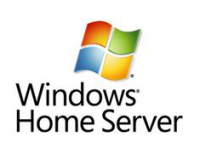Microsoft confirms enthusiasts' fears: No more versions of Windows Home Server


Q: Will there be a next version of Windows Home Server?
A: No. Windows Home Server has seen its greatest success in small office/home office (SOHO) environments and among the technology enthusiast community. For this reason, Microsoft is combining the features that were previously only found in Windows Home Server, such as support for DLNA-compliant devices and media streaming, into Windows Server 2012 Essentials and focusing our efforts into making Windows Server 2012 Essentials the ideal first server operating system for both small business and home use—offering an intuitive administration experience, elastic and resilient storage features with Storage Spaces, and robust data protection for the server and client computers.
Interesting that Microsoft is saying Windows Server 2012 Essentials -- its new hybrid cloud/on-premises SKU for small businesses is the successor to WHS. I thought Microsoft would position Windows 8 Pro with Media Center (and Storage Spaces) as the Windows Home Server follow-on.
The last version of WHS is Windows Home Server 2011, codenamed "Vail," which Microsoft released to manufacturing in March, 2011.
Over on the WeGotServed site, Terry Walsh recalls the history and user enthusiasm for WHS. The end-of-life date for the product is 2016. Actually: Windows Home Server 2011 will remain available as an OEM embedded product until December 31, 2025, and will remain available in all other current channels until December 31, 2013, according to Microsoft's documentation.
In spite of its end-of-life, lame-duck status, Walsh notes that in spirit WHS will live on:
"Going forward, whilst there may no longer be a dedicated Windows Home Server product, much of the platform’s intent has been subsumed into Windows 8 development. On the client side, improvements in backup and restore and new storage pooling functionality via Storage Spaces owe much to Windows Home Server – in spirit, if not in architecture."